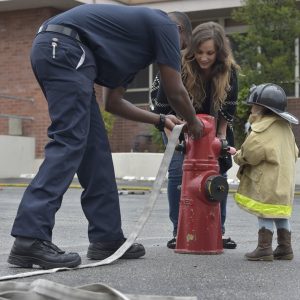 View Winners →
View Winners → Summer College Campus Visits
By May S. Ruiz
Visiting various school campuses is an essential step in your children’s college application process. Even if they are planning on matriculating in the school their parents attended, or if they have always dreamed of going to a particular school, they should still take the time to actually see and experience the school firsthand.
Your children’s high school counselors usually organize spring campus tours. It is a good time to visit because classes are usually in session so your children can see how classes are conducted. Students are also on campus and they could get a better feel for the college experience. However, this is not to say that your children should only visit during the spring.
If your children didn’t get the chance to tour schools during spring break, they shouldn’t despair. Some college counselors are quick to sound the death knell and get kids in a panic about having missed their opportunity. My daughter and I didn’t visit colleges until the summer before her senior year. While I wouldn’t advocate such timing for everyone, this worked well for us because the longer time available made it possible for us to make it a holiday excursion as well.
You, too, could make it a fun, family road trip. There are several schools in Southern California that are within driving distance, and visiting them is not as cost prohibitive as going to out-of-state schools.
One way for your children to organize their itinerary is to list schools by category: Big city or urban; Small city or suburban; Rural or small town. They can also go by type of institution: Small college or Large research university.
But before you pack your bags and get your kids in the van, there are a few things your college seekers should do first. They should make the appointment with the school’s admissions office. This is very important: YOUR CHILDREN should be the ones calling for the appointment. Most universities have a morning and afternoon tour (10:00 and 2:00) that lasts two hours. There is an information session, usually held by an admissions officer, in a large auditorium. This is immediately followed by the campus tour, usually led by a nimble and friendly current student who is adept at walking backwards.
Your children should also prepare a college checklist for each school they are visiting with the questions they need to ask. Using her high school’s guidelines, my daughter drew up a list of universities she wanted to see and researched them. Then for each school, she typed up the school’s address, the location, type of college, the undergraduate size, admissions office contact person, phone number, website address, visit date, and tour times.
My daughter also had a campus map and catalog, directions to the college, and a weather report. She had a space for writing her conclusions after she visited the campus: What did I like the most? What did I like the least? She also had a space to write the name(s) of people she met during the campus visit; and a space for what additional information she would like to have about the school.
When your children arrive at the university, they need to approach the admissions office desk and register. And I have to remind you that your children need to do all this by themselves. Admissions officers like to see demonstrated interest. They keep track of who calls their office, who schedules campus visits and tours, who requests for additional information, who makes appointments for a campus interview with an admissions officer and who asks to get alumnus/alumna contacts. They want students who are really interested to attend their school.
Once they’re on campus, they could ask questions by categories: the intellectual atmosphere (Do students enjoy their courses or are they stressed out? What is the advising system for freshmen? Are there opportunities for independent study/study abroad?) They should note the social climate (Do students stay on campus or do they leave on weekends? What are the facilities for socializing?). They should learn about campus life (What are the living arrangements? Is there guaranteed housing for four years? What are the dining options?)
Of paramount consideration to parents and their children is campus security. For the first time in their lives, our children are leaving the safety of their homes and making decisions on their own. Some children have grown up in a bubble and never had to worry about meeting strangers who could do them harm. We need to ensure that we find a place where they can enjoy the learning experience without the overwhelming concern about their well-being. Questions have to raised: (How safe is the campus? Are there cameras around the periphery of the campus? Can outsiders gain access to the student union, the fitness center, or the library?).
Of course, the most serious threat to students’ well-being may actually be within the confines of the school. When my daughter and I visited colleges, the issue of campus rape didn’t come up during the information sessions. But it has since become part of the national conversation and some institutions are addressing the topic up front. I, personally, would want to know if the school has safeguards in place to prevent such crime from occurring. How transparent are administrators about such incidents, and the disciplinary actions taken against perpetrators?
Your children might also want to know the teaching style of the university. (Do professors in their field teach the course? Is the teaching relegated to graduate students? What is the grading system?) Usually professors at large research universities do not hold classes for freshmen. Meanwhile, small colleges are more likely to have professors teach the course.
The way an institution of higher learning imparts knowledge may be significant to your children’s comfort level, and their expectations of the college experience. There is absolutely nothing wrong with teaching assistants teaching the course. Oftentimes, they have a better grasp of the subject matter than a professor whose mind is preoccupied with publishing papers.
My daughter attends a large university with a tutorial system. At the beginning of the week, an authority on the topic being discussed, holds a lecture in a large auditorium with hundreds of students in attendance. The students are then divided into smaller groups with a tutor who will be their teacher for the entire semester. These are usually graduate students at the same university. The tutors discuss the subject in greater detail; they assign and mark their students’ homework; they prepare, administer, and grade their students’ exams. My daughter actually likes this system as it allows students to get the breadth of specialists’ scope of knowledge and the depth of learning derived from one-on-one interaction with tutors.
Your children should conclude their campus visit with their own assessment. Were they originally planning to apply to the school? Did the visit change or confirm their intention?
Some children know right away when they visit a campus that they want to spend the next four years there. Or, maybe, they cannot see themselves in it. But it would be a good thing to know before they apply.
I have to inject here that the purpose of the campus visit is to help your children figure out where they will eventually apply to. Some independent counselors promise to get kids into the school of their dreams and then proceed to have the students apply to dozens of schools, using a shotgun approach. Applying to many colleges doesn’t increase your children’s chances of getting admitted. An 8% acceptance rate means your children would still have only an 8% chance of getting accepted to the institution, no matter how many schools they apply to. This only clogs up the already swelling pile of applications a school receives. It’s great for the university because it gives them a higher ranking but this only means more essays to write and more money to spend ($70.00 here and $100.00 there all adds up). Furthermore, your children will be wasting so much time on the essay for schools they may never want to attend in the first place. They need to apply somewhere they seriously want to spend the next four years at. It means an institution that offers the courses they are interested in pursuing and is the right academic, intellectual and environmental fit for them. If they end up attending a college where they are miserable, they will eventually want to transfer after the first year. Then they have to start the process all over again. And, this time it would be a more difficult ordeal …but that’s for another essay.
If your children were able to obtain an interview with an admissions officer, make sure they write a thank you note as soon as they get back home. University officials want to fill their campus with students who aren’t only smart, but students who are also well-mannered – people they could be proud of having educated.











































































































